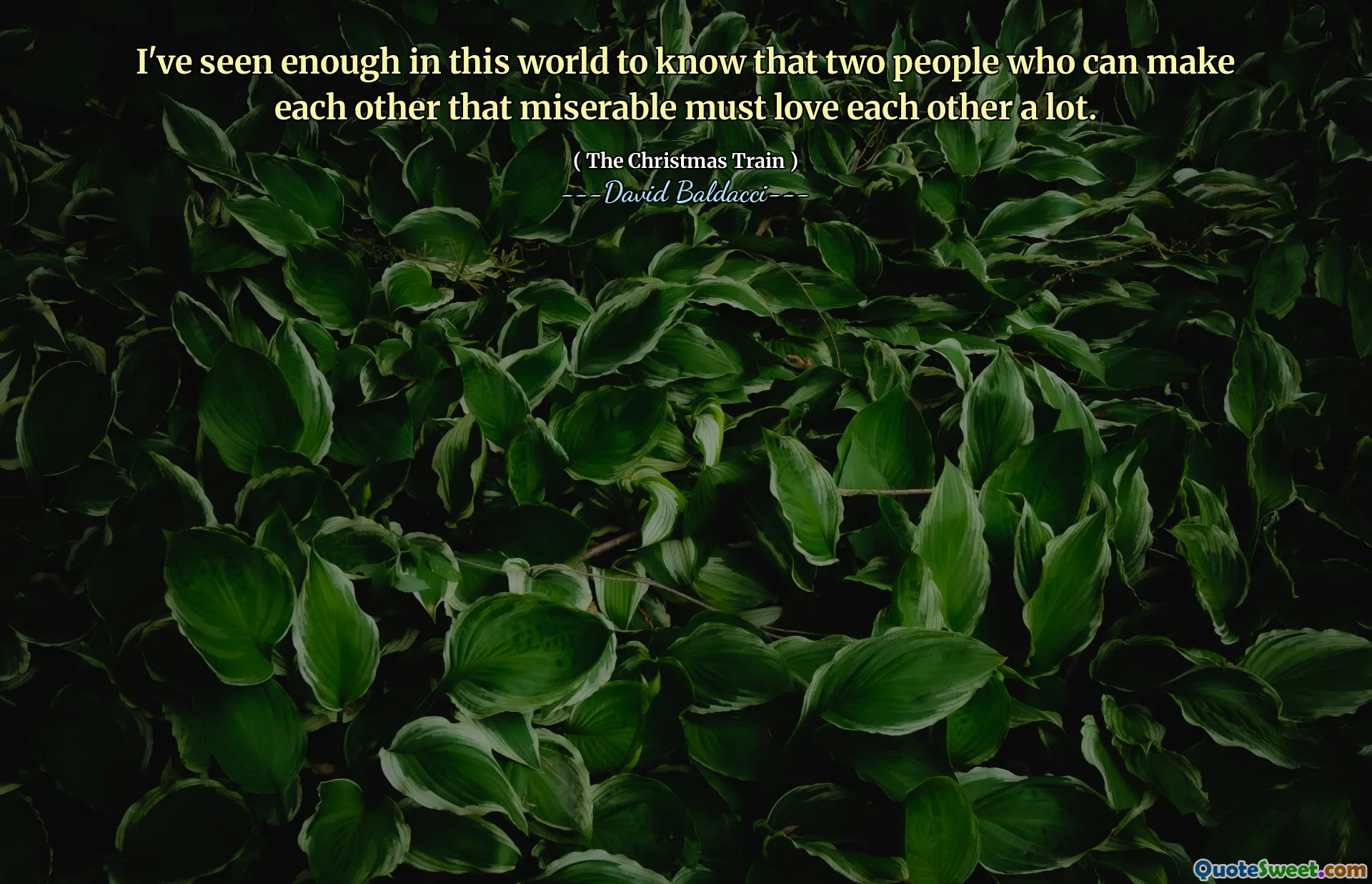
I've seen enough in this world to know that two people who can make each other that miserable must love each other a lot.
This quote captures a paradoxical truth about human emotions and relationships. The idea that intense unhappiness between two people can be a reflection of deep love challenges conventional perceptions that happiness and harmony are the only signs of affection. Sometimes, in close relationships, the lines between love and pain become blurred, leading individuals to endure suffering as a sign of their care or attachment. This dynamic can stem from various factors such as passion, dependency, insecurity, or unresolved conflicts.
Emotional intensity can act both as a barrier and a bridge; it reveals the depth of investment two people have in each other's lives. When someone makes another person miserable, it often indicates a high level of emotional investment—enough to elicit strong reactions, positive or negative. Such relationships might be fraught with misunderstanding, jealousy, or insecurity, yet these very feelings can signal they care deeply, albeit imperfectly. Recognizing this paradox allows us to understand that not all suffering in relationships points to lack of love, but sometimes, love manifests in complex, painful ways. It underscores the importance of communication, empathy, and understanding to navigate these tumultuous emotions.
In the broader human experience, this quote invites reflection on how love can be both a source of joy and intense suffering. It reminds us to look beyond surface appearances and question the true nature of affection and attachment. True love doesn’t necessarily eliminate conflict; instead, it’s about enduring and working through the hardships together, understanding that emotional extremes sometimes reveal the depth of our connection. This nuanced insight elevates our comprehension of human relationships, highlighting that emotional volatility does not diminish love’s authenticity but can often be a testament to its strength.






